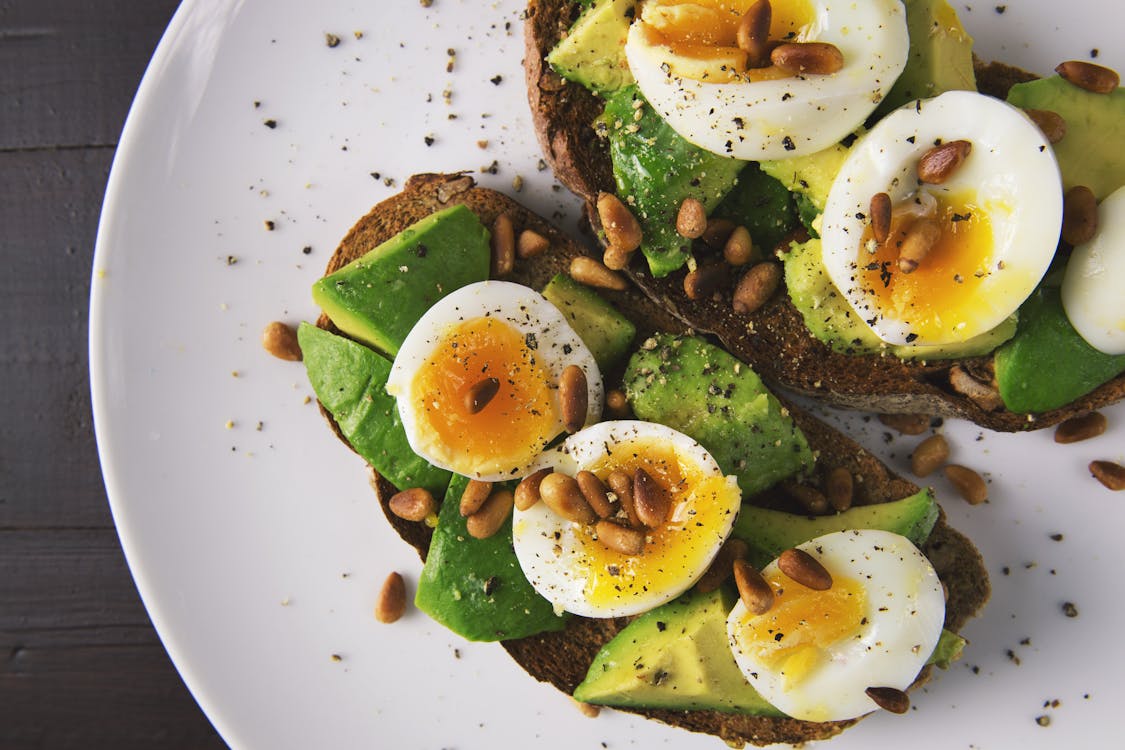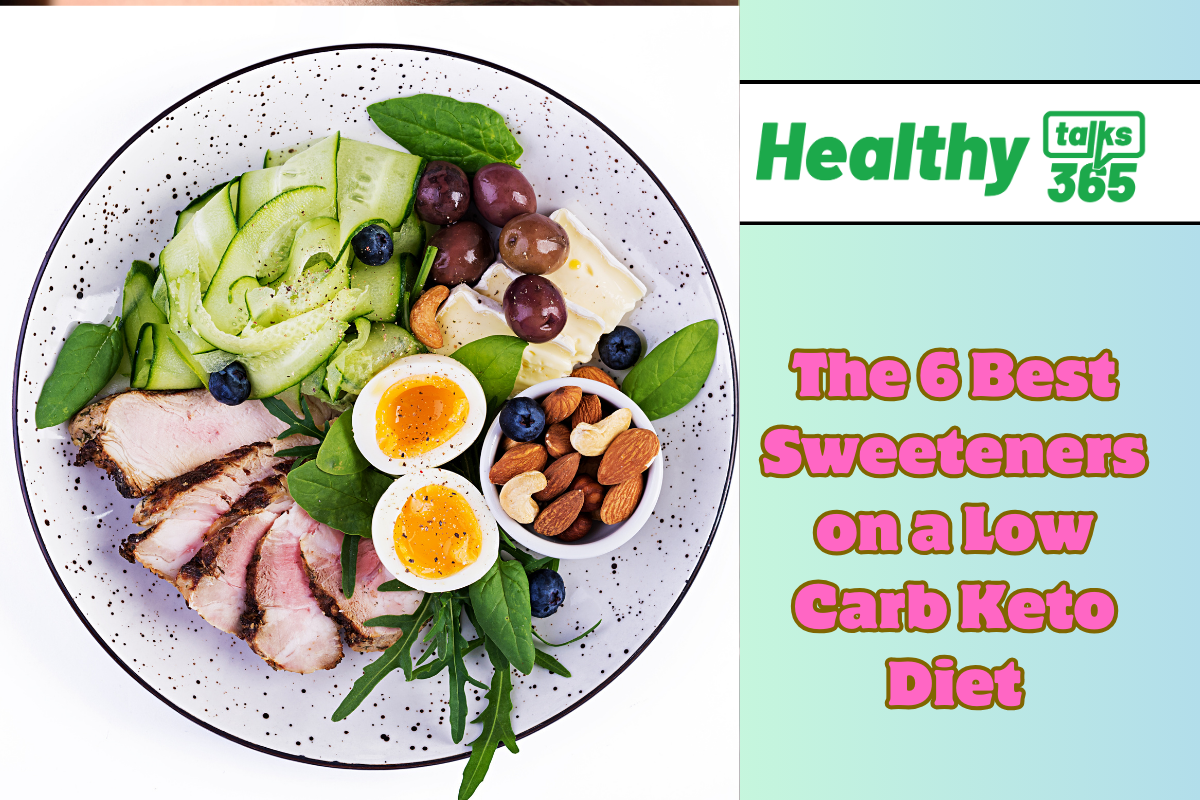The 6 Best Sweeteners on a Low Carb Keto Diet
1. Stevia is used as a sugar substitute in a keto diet
Stevia is a popular and widely used sugar substitute for those on a keto diet. Derived from the leaves of the Stevia rebaudiana plant, it is a natural sweetener that contains zero calories and carbohydrates, making it an ideal option for maintaining ketosis. Stevia is significantly sweeter than sugar, so only a small amount is needed to achieve the desired sweetness. It is available in various forms, including liquid drops, powder, and granules, and can be used in a variety of recipes, from beverages to baked goods. Its versatility and natural origin make it a favorite among keto dieters.
Stevia can be used to sweeten beverages, desserts, and other dishes without adding carbohydrates, making it suitable for maintaining ketosis—a metabolic state where the body burns fat for fuel instead of carbohydrates. Its sweetness without calories makes stevia a valuable tool in managing sugar intake while on a keto diet.
Read Also:
Healthy Foods For Keeping Healthy Weight In Winters Cold
2. Erythritol is commonly used in a keto diet
Erythritol is another commonly used sweetener in a keto diet. It is a sugar alcohol that occurs naturally in some fruits and fermented foods, but it is often produced industrially for use as a sweetener. Erythritol provides about 70% of the sweetness of sugar but contains only a fraction of the calories and carbs, which do not get absorbed by the body and thus do not impact blood sugar levels. It has a cooling effect on the palate and can be used in baking and cooking without contributing to the carbohydrate count. Its low glycemic index and minimal impact on insulin levels make it a reliable choice for keto followers.
Erythritol is absorbed into the bloodstream and then excreted unchanged in the urine, so it does not contribute to net carbohydrates or affect ketosis. This makes erythritol a popular choice for baking keto-friendly desserts or sweetening beverages while adhering to low-carb dietary goals. Its ability to provide sweetness without impacting insulin levels makes erythritol a suitable sugar substitute for those following a keto lifestyle.

3. Monk fruit sweetener is a great option for keto diet
Monk fruit sweetener is an excellent option for those on a keto diet. Extracted from the monk fruit, or luo han guo, it is a natural sweetener that contains zero calories and zero carbohydrates. Monk fruit sweetener is incredibly potent, often being 100 to 250 times sweeter than sugar, so only a tiny amount is needed to achieve the desired level of sweetness. It does not affect blood sugar levels, making it a suitable option for those managing diabetes or insulin resistance. Its pleasant taste without the bitter aftertaste sometimes associated with other sweeteners makes it a preferred choice for keto-friendly recipes.
Monk fruit sweetener contains natural compounds called mogrosides, which provide sweetness without calories and have no effect on blood sugar levels. This makes monk fruit sweetener a suitable alternative to sugar for individuals aiming to reduce carbohydrate intake and achieve or maintain ketosis. Its sweetening properties and lack of impact on insulin response make monk fruit sweetener a valuable addition to a keto-friendly pantry, allowing people to enjoy sweet treats without compromising their dietary goals.
4. Xylitol is a good substitute of sugar for keto diet
Xylitol is another sugar alcohol that serves as a good substitute for sugar on a keto diet. Found naturally in many fruits and vegetables, it is also produced commercially from corn cobs or birch trees. Xylitol provides sweetness comparable to that of sugar but with about 40% fewer calories and a lower glycemic index, which makes it less likely to spike blood sugar levels. It has the added benefit of promoting dental health by reducing the risk of cavities, making it a popular sweetener in sugar-free gum and toothpaste. However, it should be consumed in moderation as excessive intake can lead to digestive discomfort.
Xylitol is metabolized differently than sugar and does not spike insulin levels, making it suitable for maintaining ketosis. However, it’s important to use xylitol in moderation, as excessive consumption can cause digestive discomfort in some individuals. When used sparingly, xylitol can sweeten foods and beverages without significantly affecting carbohydrate intake, making it a viable option for those on a keto diet.

5. Allulose is a keto friendly choice
Allulose is a relatively new and exciting sweetener option for the keto diet. It is a rare sugar found in small quantities in certain fruits like figs and raisins. Allulose provides about 70% of the sweetness of sugar but with only 10% of the calories, and it does not raise blood glucose or insulin levels. Its chemical structure is similar to that of fructose, but the body does not metabolize it in the same way, allowing it to pass through the system without being absorbed. This makes it an excellent choice for keto-friendly baking and cooking, as it provides the texture and taste of sugar without the carb content.
Allulose tastes similar to sugar but is absorbed differently in the body, resulting in negligible net carbohydrates. This makes allulose suitable for those following a ketogenic diet, as it can be used to sweeten foods and beverages without impacting ketosis. Allulose is increasingly popular in keto baking and cooking due to its ability to provide sweetness without the caloric and glycemic load of traditional sugars.
Read Also:
6. Stevia-Erythritol Blend is a great sugar substitute for keto diet
A blend of stevia and erythritol combines the best of both sweeteners, creating a balanced and highly effective sugar substitute for the keto diet. The blend leverages the intense sweetness of stevia with the mild, sugar-like bulk and texture of erythritol, making it an excellent option for a variety of culinary applications. This combination helps to mitigate the potential aftertaste of stevia while providing a more familiar mouthfeel and sweetness profile akin to sugar. It is ideal for baking, as the erythritol adds volume and stability, while the stevia provides the necessary sweetness without adding any carbs or calories.
Stevia adds intense sweetness without calories or carbohydrates, while erythritol provides bulk and a texture similar to sugar without impacting blood sugar levels. Together, they create a blend that can be easily substituted for sugar in recipes, helping to reduce overall carbohydrate intake. Stevia-erythritol blends are commonly available in granulated or powdered forms, making them convenient for sweetening beverages, desserts, and other dishes while adhering to a ketogenic eating plan.




